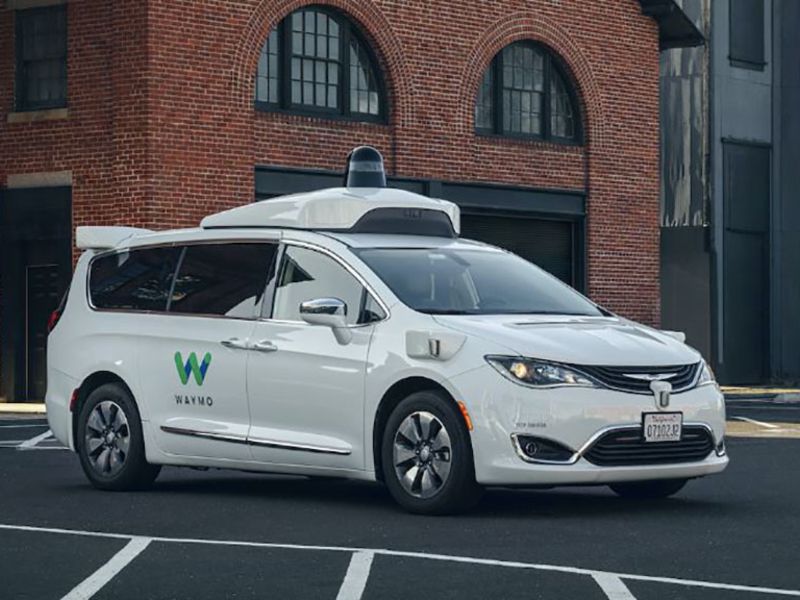
Waymo and Fiat Chrysler Automobiles first partnered on building autonomous vehicles four years ago, and the result was the self-driving minivan, now a fairly common sight in parts of California and Arizona, where they are used as robotaxis.
Now the companies intend to spread the technology beyond the Chrysler Pacificas and throughout the FCA fleet. They’re also thinking beyond cars and embarking on a project involving delivery vehicles.
Waymo and FCA said Wednesday they will deepen their relationship and build commercial vehicles for transporting cargo. They initially will integrate Waymo’s self-driving system onto the Ram ProMaster van, which the companies say is a “highly configurable platform that will enable access to a broad range of global commercial customers.”
The news comes amid a frenetic series of industry developments related to self-driving delivery vehicles. Complications in deploying passenger-carrying autonomous taxis, combined with a COVID-19-inspired acceleration of delivery trends, have brought newfound focus on autonomous trucking and goods-carrying capabilities.
On the passenger-vehicle front, FCA CEO Mike Manley said the automaker has chosen Waymo as its exclusive provider of Level 4 self-driving systems for passenger vehicles.
The two companies will work together to deploy Waymo’s self-driving system across FCA’s “full product portfolio.” Further, Waymo says the exclusivity also means FCA will no longer work with companies such as Aurora Innovation, Voyage and others to jointly integrate self-driving systems on the Chrysler Pacifica minivans.
No time frame for deploying such vehicles either in test scenarios or for consumer use is yet available. Still, Waymo’s technology aboard passenger vehicles may be an advantage for Stellantis, the name FCA and PSA will use for their merged company, in someday wooing tech-savvy consumers across the automaker’s global footprint.
“Together, we’ll introduce the Waymo Driver throughout the FCA brand portfolio, opening up new frontiers for ride-hailing, commercial delivery and personal-use vehicles around the world,” Waymo CEO John Krafcik said in a written statement.
Waymo already has a partnership with Renault-Nissan that has established early aspects of what could someday become worldwide scale.
The prospect of spreading Waymo’s self-driving technology throughout its lineup may be the big news for FCA. But the days when automotive companies sell Level 4 capabilities – those in which occupants have zero role in the driving process – in personally owned vehicles are far off.
The ProMaster aspect of Wednesday’s announcement may have nearer-term implications.
In June 2019, Waymo, the commercial entity spawned from Google’s self-driving vehicle project, restarted its self-driving truck testing in metro Phoenix. Then in March, it formally christened its cargo efforts “Waymo Via.” Via combines everything from long-haul trucking to intracity deliveries, such as the ones conducted in a pilot project with AutoNation using Pacifica minivans, into a single division.
Waymo started a partnership with logistics giant UPS Inc. in January. For now, it’s a small-scale endeavor that operates a pilot project in metro Phoenix. But both companies have affirmed long-term intentions.
Meanwhile, e-commerce giant – and logistics rival – Amazon has invested in Aurora Innovation, which on Monday said it would open an operations center in the Dallas-Fort Worth area, where it will begin testing long-haul and “middle-mile” autonomous trucks by the end of the year.
Amazon also said last month it will acquire self-driving startup Zoox. While Amazon hasn’t said whether it intends to wade into the ride-hailing foray with Zoox’s technology or perhaps use its bespoke, bidirectional electric vehicles for delivery services, analysts believe it’s the latter.
The ProMaster could handle the same middle-mile delivery routes. Now Waymo and FCA have added the next chapter in the push toward using self-driving technology for delivery purposes.
“Our now-four-year partnership with Waymo continues to break new ground,” Manley said in a written statement. “With this next step, deepening our relationship with the very best technology partner in this space, we’re turning to the needs of our commercial customers by jointly enabling self-driving technology for light commercial vehicles.”